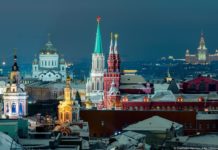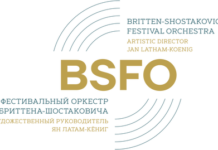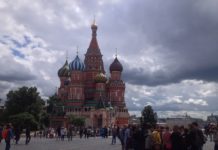They say that a week can be a long time in politics – a year even longer.
From Brexit in June to the election of Donald Trump as President elect in November the political world has changed beyond all recognition – with key elections being held in France and across Europe in 2017 the trend could well be set to continue – no one quite knows what the future holds but the role of Russia as a regional and global partner, despite its flaws is becoming more apparent by the week.
Having taken over the helm of the Westminster Russia Forum (WRF) in January 2014 I have seen, albeit in a limited way East -West relations at the coal face – from what was an optimistic start to 2014 with the Sochi games to the rapid deterioration of both ties and trust between Moscow and the West through to the Ukraine and now the appalling humanitarian disaster that is Syria – one thing has remained clear, the need to cooperate on core areas of importance is a crucial means of overcoming mutual interest concerns.
Geopolitics aside the frustration that I and many others have felt is the lack of equitable media reporting on major issues of mutual national importance. Russia is a country that has always had it detractors and always will – as a student of Russian history I often recall similar periods of history – the media hysteria is as comparable now as during the Great Game of the 19th Century – myth and mystery sells news – the times may have changed but the stakes are much higher.
The Russia that both I and many others across the United Kingdom see is often not what is perceived in the media and by Government but one which has a different world view to ours here – It is a country that should rightly be questioned, as we all should but one that is continuing to develop into itself since its break from Communism in 1991. It is only right that we have disagreements and should call into question the actions of Moscow when needed but in my experience it is easier to be a critical friend and have a greater influence than simply become a critic.
Moscow has a different set of national economic – geopolitical priorities to that of the UK and its Western partners – to think otherwise would be naive – yes we need to keep one another in check and ensure that the proportionate response is given to perceived transgressions but not to cut off from what can broadly be a beneficial relationship to both parties. It is easy to criticise Moscow for its role in Ukraine and Syria – perhaps justified but before our own government, Brussels and NATO criticise we should keep also a keen eye on our own foreign policy failings before casting moral judgements.
Moving into 2017 it is worth recapping on how bilateral relations have changed in the past year and dare I hazard a guess at how relations will continue to evolve in 2017.
From a UK perspective the change of Government yielded atleast a lip service to a rapprochement with Moscow – a tacit understanding of its positions with regards to sanctions, Ukraine and Syria – the key areas of contention but in reality we have seen much of the same as under the previous administration. In reality the rhetoric has softened which is a welcome move but in terms of official UK Government policy we are at a similar juncture as a year or so ago with a limited scope to reverse the sanction regime. The same cannot quite be said for Moscow – its policy positions are well documented but entrenched and it seems to me at least that it is Moscow’s Western partners that seem unable to make the move toward beginning meaningful dialogue.
Of course there are many reasons for this but as politically interesting as geopolitics is it is the role of business and cultural organisations, individuals and leaders which are the real litmus test of the will for bilateral relations. Whether policy makers like it or not it is both business and cultural ties that make a relationship work – not solely the interests and views of a narrow section of the British political elite.
Cultural ties between the UK and Russia remain incredibly strong, we have a large settled Russian community in the UK and growing British expat community in Moscow and elsewhere – so too do business ties help increase understanding and boost relations. If we are trading commerce and culture we are building a bridge.
Relations could be better but they could be alot worse – Summer 2014 springs to mind. I see a glacial thawing in relations and outside of the Westminster party political clique and London based media the vast majority of businesses, organisations, academics and individual citizens that I and many within WRF talk to on a regular basis do not see the same spectre. In fact I would go as far to say that there is a pretty large disconnect between the public and official view and would hazard a guess that the this is the exact same in Russia.
A recently passed European Parliament motion aligning Moscow with ISIS as a severe propaganda threat seems to me a a major break from protocol – Russia is a global, educated and diverse nation, yes with a different world view but a trade partner – not a deranged Islamist cult. A childish and short sighted move if ever there was one.
It is impossible to predict what will happen in 2017 – both Presidential candidates in the French elections are pro-dialogue with Moscow, Bulgaria and Hungary have governments keen to re-engage in political discussions and with President-elect Trump taking office next month it will be very interesting to see how quickly – if at all, our fiercely anti-Moscow Ministers change tack.
Will we always have disagreements and is Moscow a tough partner to negotiate? Yes to both questions but the trick for European, Russian and British policy makers will be not how to work constructively with one another but to do so with the recognition that equitable relations are both desirable and necessary.
The political winds seem to be changing – change can be a good thing but carries with it distinct political risk. Moscow may be a difficult partner but its role is now entrenched – I would predict a positive improvement in 2017 relations between the UK and Russia but one that is cautious – whether our policy makers here and in Brussels like it or not we need to engage with Moscow – not dictate but to engage as an equal partner with a different world view.
Whatever our national political and media leaders think – the will of people to trade and enjoy one another’s culture will always flourish. As they say – if business can find a way it will – perhaps it is the politicians on both sides that need to realise this reality and so long as this sentiment continues bilateral ties will exist – albeit at a base level, our two great nations are too important on a global level to ignore one another.
So as we move into 2017 lets do so with an optimistic step – London and Moscow may not be the best political friends but who knows they may find a way to re-engage, stranger things happened in 2016…
Nicholas Cobb
Chairman – Westminster Russia Forum
www.westminster-russia.org.uk



